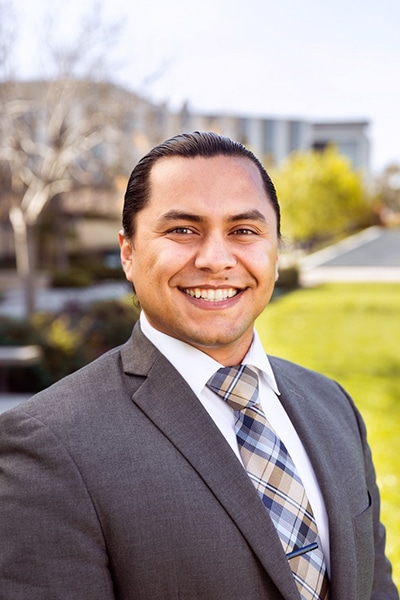|
Getting your Trinity Audio player ready...
|
“Your communication style is perceived as devious.”
That is the answer I was given for why I was facing resistance when presenting new programming. What was perceived as devious was the passion and animated style with which I spoke (this comes from my Nicaraguan Pentecostal background). At that moment, I doubted my ability to lead in that context. How else was I supposed to lead if not through who I was? I felt the acute pressure to assimilate.
This experience (among many others) prompted me to think about my Latino professional identity in a predominantly white institution (PWI). I entered a season of deep soul searching, but as I gained clarity on my identity, I also recognized the implications of embodying leadership—both personal and organizational.
(Re)Defining Leadership
Leadership is much too often described solely from a theoretical perspective, leaving cultural realities as mere considerations. Author Peter Northouse, for example, defines leadership and only later incorporates culture as an important consideration.

But I believe cultural dimensions should be part of the very process of defining leadership—and I am not alone in this belief. Author Jesse Miranda perceives a leader as a companion-visionary “who lives with integrity before society, practices intimacy with their followers, like Jesus did, and skillfully conquers trust with their community,” as he explains in his book Liderazgo y amistad: Un ministerio que transforma. Juana Bordas, author of The Power of Latino Leadership: Culture, Inclusion, and Contribution, defines leadership specifically from her Latina identity and experience. She eloquently presents a three-prong framework for leadership, which includes personalismo (personality), conciencia (conscience), and destino (destiny).
Both Miranda and Bordas define leadership through the lens of their identity—their whole identity. Their insights have been both informative and affirming to me as a Latino leader.
The Impacts of Institutional Culture
Neither leadership nor identity are merely theoretical constructs. Even our definitions of terms like “predominantly white institutions” come hand in hand with implications for leaders of color. In a 2016 research article, Brian Bourke explains that describing universities as PWIs confronts the reality that “race and racism are the cornerstones upon which these institutions were built and currently operate.”
Bourke goes on to demonstrate specific ways this classification is used as an anchor for processing experiences and understanding institutional recruitment and affiliation, among other things. Institutional culture, represented here through nomenclature, impacts the experiences of the constituents that do not fit the cultural mold. It goes without saying that the effort to embody leadership in these contexts is severely hindered by this reality.
Leadership Classifications
Embodying leadership in PWIs is more problematic when our own sense of identity is fragile. This was certainly the case for me at one point.
But during my season of soul searching, I came across two helpful resources, including the identity grid Orlando Crespo created (which contrasts one’s degree of assimilation with one’s sense of ethnic identity), and the classification of Latino leaders found in Dr. Robert Rodriguez and Andrés Tapia’s book, Auténtico.
According to Rodriguez and Tapia, Latina/o leaders fall under four categories:
- The Unapologetic Latino
- The Equivocal Latino
- The Retro Latino
- The Invisible Latino
I understood from Crespo’s work that, over the course of my professional journey, I had gone from embodying a high degree of assimilation to embodying a low degree of assimilation and a high degree of ethnic identity. From Rodriguez and Tapia’s explanations, I realized that I had gone from an Invisible Latino to an Unapologetic Latino.
Forging a Path Forward
Today, I embrace the dichotomies inherent to leading as a person of color in modern America.
First, I lean into the fullness of my Latino identity while simultaneously acknowledging institutional realities. I can now lead as a Latino with confidence by resting on the deep roots I found in my cultural heritage and faith tradition, but by acknowledging institutional realities, I am able to put experiences into perspective. I do not downplay or justify the negative experiences I had. I do, however, reframe those experiences in light of institutional biases.
In other words, my ability to accurately assess an organization’s cultural identity determines the manner in which I process my experiences. Rather than assigning responsibility to and feeling shame about my identity, I am able to confront the root cause, which is institutional culture.
Second, instead of falling prey to the pressure of assimilating into the institutional culture, I now choose when and how to utilize the cultural values stored in my leadership arsenal. This is different than code-switching. Rather than simply changing communication style, I lean on the strengths of my Latino identity in selective ways. The pressure of assimilating for the sake of survival and career longevity is dismantled by the degree of affirmation I have gained through the intentional search for my cultural identity.
In the end, one thing has become clear to me: the benefits of embodying Brown leadership far outweigh the challenges of leading through an assimilated identity.
The views expressed in this article are those of the author and do not necessarily reflect the position of Hispanic Executive or Guerrero Media.
Norlan Hernández Blandón is a proud Nica/Nicoya—terms used to describe someone with Nicaraguan roots. He is the proud father to Aella Mia and husband to Isabel.
He is the founder and president of Faithful Teachings Inc. a nonprofit organization that aims to catalyze the transformation of society in Latin America through partnerships with local faith-based communities, and is also the director of the Jesse Miranda Center for Hispanic Leadership at Vanguard University. In this role, Hernández Blandónworks internally with administrators, faculty, and staff to support student success and strengthen Vanguard University’s Hispanic-serving initiatives. Externally, he helps advance the center’s mission through pastoral education, congregational care, academic research, and community development.
His previous roles include leading a corporate training department that served an international audience. He has also led a team of higher education professionals who pioneered institutional efforts in creating an infrastructure to support fully online undergraduate and graduate students.
He holds a BA in liberal studies with an emphasis on culture and society from California State Los Angeles, an MA in theology from Fuller Theological Seminary, and a PhD in intercultural studies from Biola’s Cook School of Intercultural Studies. His research interests include Latin American identity, theology, contextualization, leadership, justice, and DEI.

